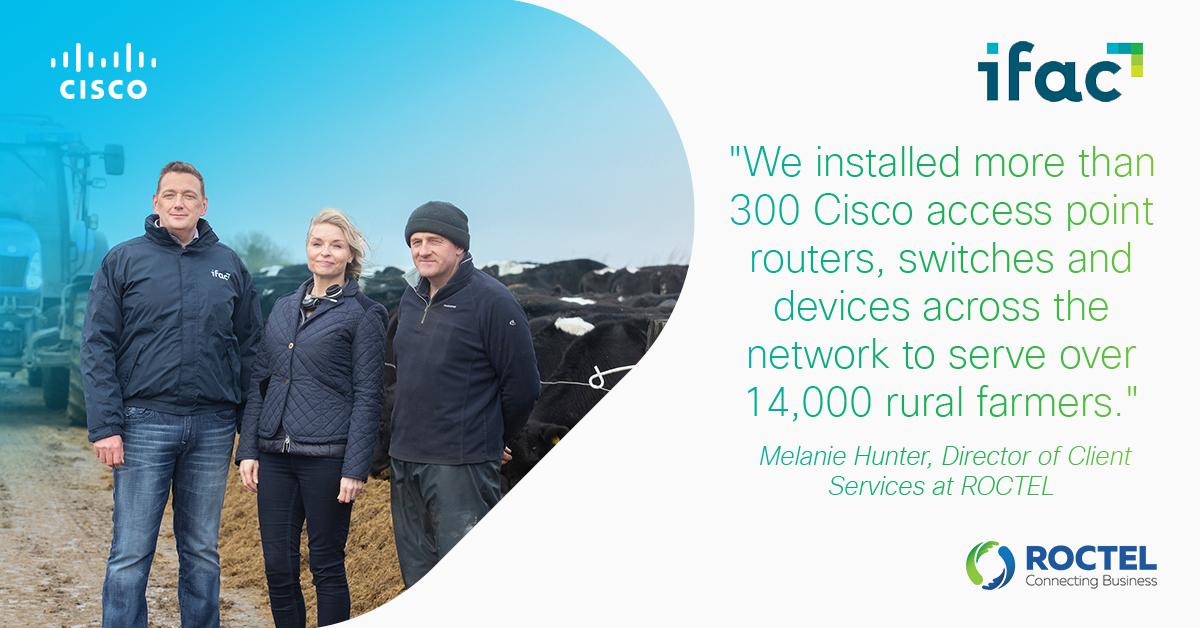Download the ROCTEL Network & Cybersecurity Report 2026 Now
Download Report
Aside from the obvious frustration involved in not being able to access what many have deemed to be an essential utility, there’s also the not-so-obvious economic impact. According to Deloitte, the digital divide costs the United States roughly $130 million per day in economic activity. Quite simply, those who do not have access to the internet are at a competitive disadvantage.
In Ireland, farming represents 1.2 percent of GDP and is the largest vertical contributor. There are also more than 500,000 premises—representing 1.1 million people—in rural Irish communities that don’t have access to broadband connections. More than 54,000 of those premises are farms. With agriculture not only being such an important part of Ireland’s overall economy, but also its history and society, it’s more important than ever that those in rural communities are better able to bridge the digital divide that separates them from those in cities like Dublin and Galway.
Established in 1975, ifac provides financial services to more than 14,000 rural farmers specializing food, agribusiness, and renewable energy. Those financial services include accounting, specialty services, bookkeeping, financial planning, paying taxes, payroll, corporate finance, etc. While many of their financial tools are available online, ifac needed to undergo a massive digital transformation in order to provide their employees—and members—with more robust access to the internet. They also needed to be able to do so with disaster recovery policies in place and security baked-in, especially considering they have more than 150 “road warriors” around the country who work primarily mobile.
When ifac approached us with their problem, we immediately got to work. We started by connecting to other local networks nearby, which meant hooking up with many types of tech already in place, like microwave beams, 4G, and direct fiber. Then, to make sure the network reached everywhere it needed it to go, we installed more than 300 Cisco access point routers, switches and devices across the network.
 Photo Courtesy of ROCTEL
Photo Courtesy of ROCTELOn the software side, we also rolled out several solutions under our ROCSOLID managed service, which helps members of ifac work together and manage their new network:
In just six months ROCTEL connected all devices and delivered carrier-neutral connectivity to offer disaster recovery, high speeds and security to all ifac locations. Now, farmers can walk into any ifac branch office in the country and enjoy enterprise-class Cisco Wi-fi without changing credentials or compromising security. All of which makes it easy to share ideas and keep their farms growing.
By utilizing so many Cisco products to create the managed service, we were able to provide a more holistic operation as compared to the siloed one ifac had been running. Because of this approach, not only has ifac been able to cross the digital divide bridge, they’ve also been able to accelerate their growth by opening new branches in rural areas across the country.
And despite COVID-19 bringing a lot of businesses to a grinding halt, ifac was able to keep on providing best-in-class services to its members by rolling out managed cloud-based services to allow many employees to have full telephony from home by using Jabber and Webex. The organization has in some areas been utilizing ROCSOLID HOME service in order to address that need, making sure their employees are still connected even though they can’t go into an ifac office.
While work remains to be done to fully close Ireland’s digital divide, we at ROCTEL are proud to have played a part in not only connecting the unconnected, but to also help bring necessary services to such an important part of our economy and society.